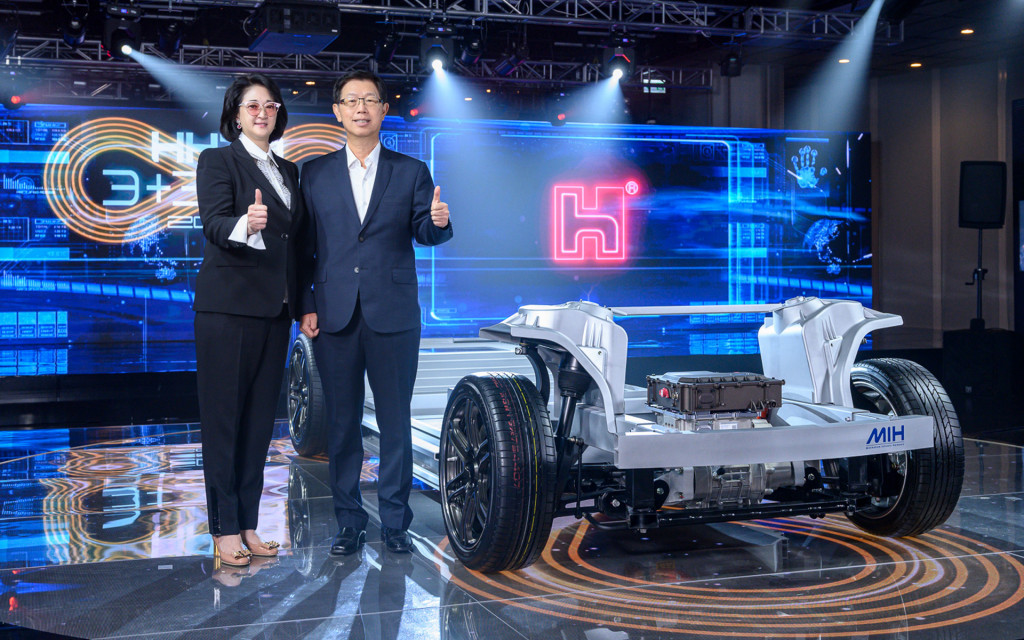The growing convergence between the auto and tech industries continues to see new players enter the domain traditionally held exclusively by the major automakers. The latest is Taiwan's Foxconn, a contract manufacturer of electronic goods whose clients include the likes of Apple, Amazon, Microsoft and Sony.
Foxconn in recent years has expanded to manufacturing electronic components for cars, and last week it presented a whole platform designed for electric vehicles. Dubbed the MIH, the platform is a modular design that contains in-house developed software and hardware systems for EVs, and is suitable for both car and SUV bodies.
Foxconn plans to offer the platform to companies looking to launch EVs, and said the platform has been developed with open-source in mind to distinguish it from many existing EV platforms where making changes to the software and hardware can be difficult. The company said it wants the platform to be as flexible as possible, likening it to Google's Android operating system.

Foxconn Chairman Young Liu (right) with the MIH modular EV platform
“Our vision at Foxconn is to work with leading customers around the world to create an inter-connected world with smart technologies,” Young Liu, Foxconn's chairman, said in a statement. “Foxconn continues to be committed to the research and development of next-generation technologies in new industry sectors, products and manufacturing processes.”
Foxconn isn't stopping with its MIH platform. The company is also further developing key components for EVs like electric motors and batteries, including solid-state batteries which it said will be commercialized by 2024. Foxconn said its solid-state batteries will offer the range of current liquid-state batteries but will be safer and much more affordable. Foxconn has also made major investments in some Chinese automakers, including a $350 million investment in Xpeng in 2018. Foxconn and Fiat Chrysler Automobiles have also announced plans to jointly develop EVs for the Chinese market.
It isn't the first outside player to attempt to challenge the major automakers. Samsung has built its cars for years, and Sony over the past year has been showcasing an EV concept. You also have major tech companies both in China and the United States competing with automakers to develop self-driving technology. Expect the trend to only accelerate.
